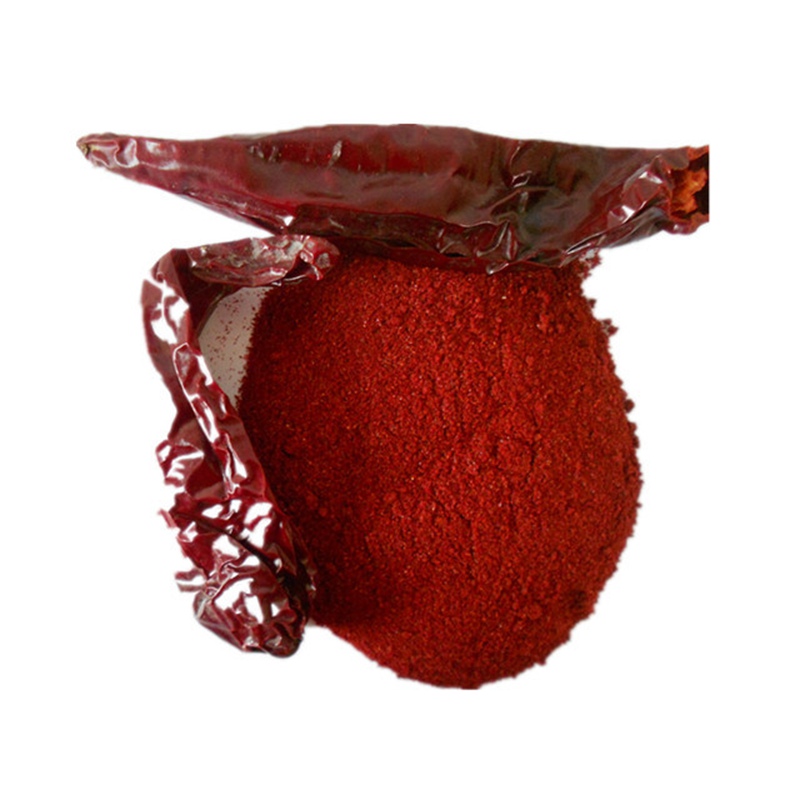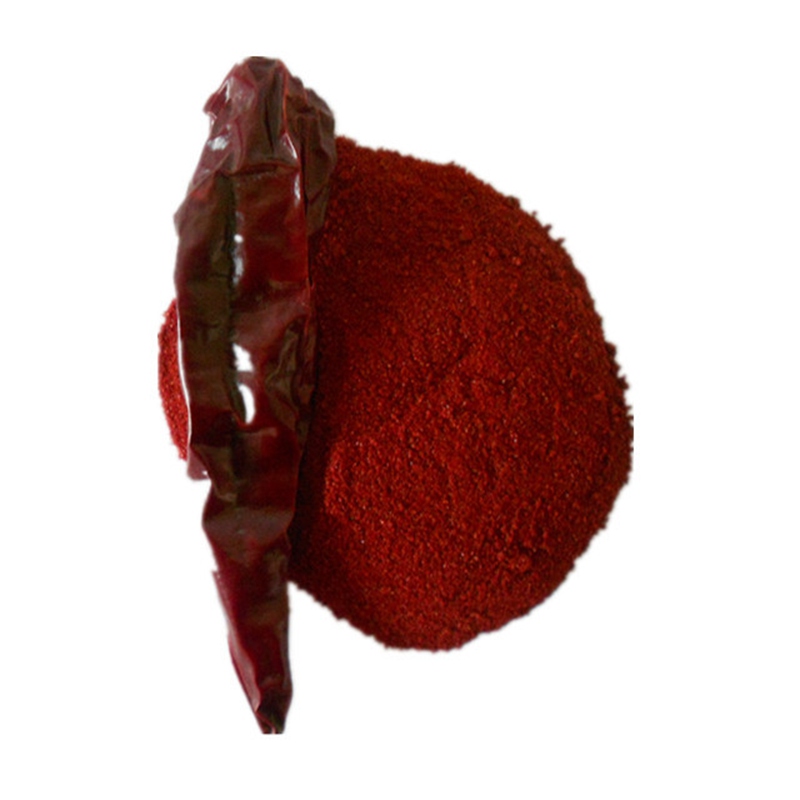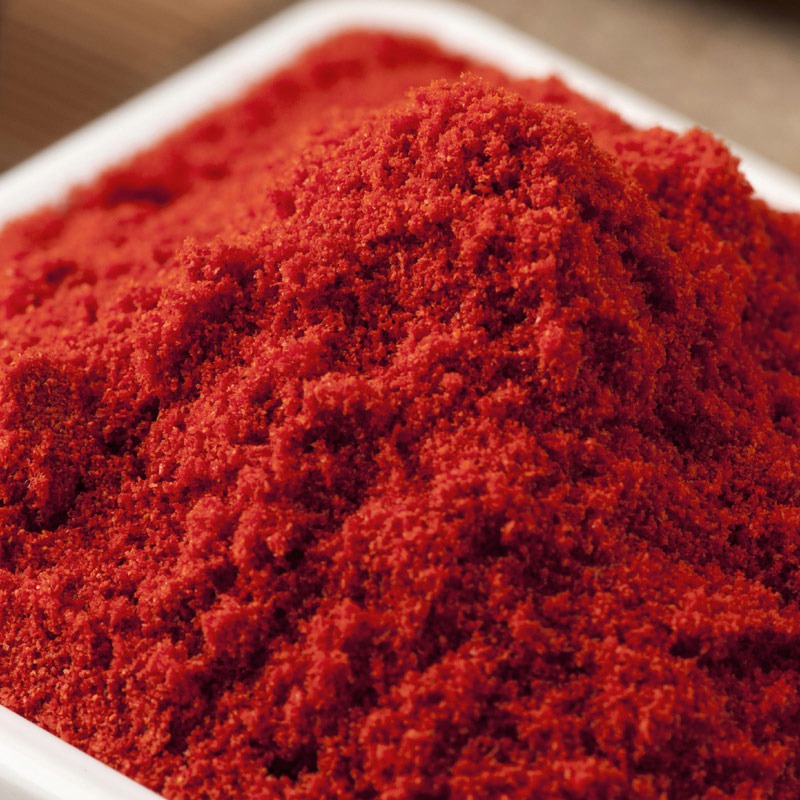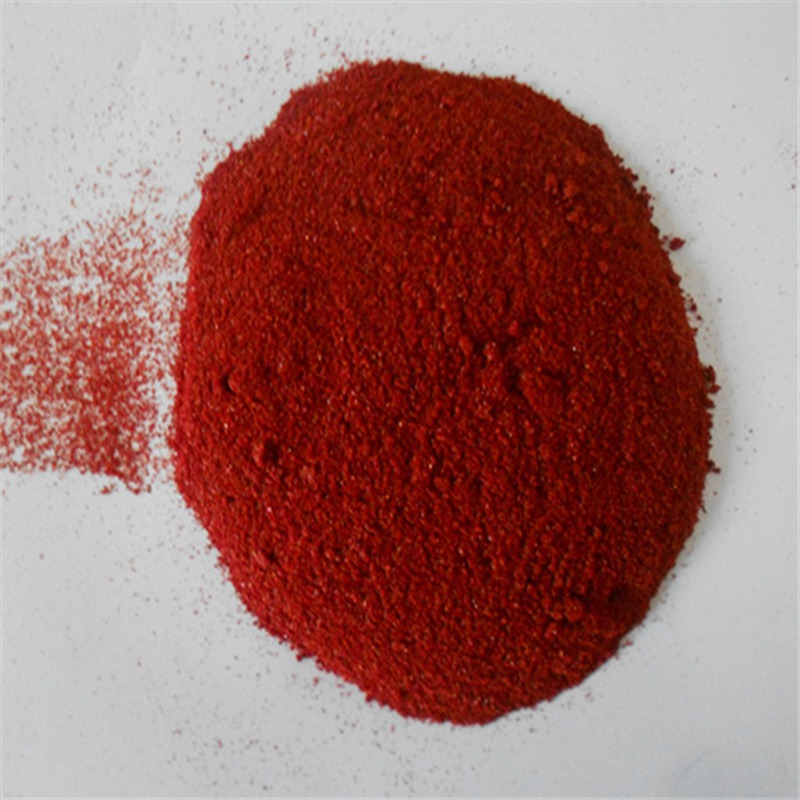Abu . 25, 2025 02:20 Back to list
Authentic Spanish Sweet Paprika Pimenton | Rich Flavor & Aroma
Introduction to Sweet Paprika Pimentón in Industrial Applications
In the global food and culinary industries, the demand for high-quality, authentic, and consistent flavor enhancers is ever-present. Among these, sweet paprika pimenton stands out as a versatile ingredient, prized for its vibrant color, nuanced aroma, and mild, sweet flavor profile. Derived from the dried, ground pods of specific non-pungent varieties of Capsicum annuum, this essential spice is distinct from its smoked or hot counterparts, offering a unique sensory contribution without introducing heat. Its application extends across a vast array of food products, from processed meats and savory snacks to sauces, seasonings, and gourmet dishes. For B2B stakeholders, understanding the intricate details of its sourcing, processing, technical specifications, and application advantages is crucial for optimizing product formulations and maintaining competitive differentiation. This article delves into the technical intricacies, market trends, and strategic considerations surrounding industrial-grade sweet paprika powder.
The quality and consistency of sweet paprika powder are paramount for food manufacturers. Factors such as color intensity, particle size distribution, moisture content, and microbial purity directly impact the final product's sensory attributes and shelf stability. As a leading supplier, our commitment is to provide a product that meets rigorous industry standards, ensuring superior performance in diverse industrial applications. The growing trend towards natural ingredients and clean labels further accentuates the importance of meticulously sourced and processed paprika, free from artificial colors or flavors.
Industry Trends & Market Dynamics for Paprika
The global spice market is experiencing dynamic growth, largely driven by evolving consumer preferences for diverse, ethnic, and natural flavors. Within this landscape, paprika, particularly the sweet varieties, holds a significant position. Key industry trends include:
- Clean Label Movement: Consumers and, consequently, food manufacturers are increasingly seeking ingredients that are natural, recognizable, and free from artificial additives. This trend directly benefits high-quality sweet paprika pimenton as a natural coloring and flavoring agent.
- Global Flavor Exploration: There is a sustained interest in authentic global cuisines, where paprika often plays a foundational role. Its versatility allows it to be incorporated into various regional dishes, from European to Latin American and Asian-inspired foods.
- Health & Wellness: Paprika contains beneficial antioxidants and vitamins, aligning with the broader health and wellness trend. While not a primary health supplement, its natural composition adds value to food products positioning.
- Supply Chain Resilience: Geopolitical events and climate change increasingly impact agricultural commodity markets. Manufacturers are prioritizing suppliers with robust, diversified, and transparent supply chains to ensure consistent quality and availability of critical ingredients like sweet chili paprika.
- Sustainability & Ethical Sourcing: Environmental sustainability and ethical labor practices are becoming non-negotiable for many B2B buyers. Sourcing from growers committed to these principles is gaining precedence.
The market for sweet paprika powder is projected to continue its upward trajectory, with applications expanding beyond traditional meat processing and seasoning blends into innovative plant-based foods, ready meals, and specialized snack coatings. Suppliers capable of offering consistent quality, technical support, and scalable solutions are best positioned to capitalize on these evolving demands.

Image 1: Raw Capsicum annuum drying process, a critical step in producing quality sweet paprika pimenton.
Detailed Process Flow: Manufacturing Sweet Paprika Powder
The production of industrial-grade sweet paprika pimenton involves a meticulous series of steps designed to preserve its delicate flavor, vibrant color, and ensure microbial safety. Our process emphasizes control at every stage, from agricultural sourcing to final packaging.
Materials & Sourcing
The foundation of exceptional sweet paprika powder lies in the selection of premium raw materials. We source specific cultivars of Capsicum annuum, chosen for their high color value (rich in carotenoids), low pungency (Scoville Heat Units typically 0), and robust flavor profile. Our agricultural partners adhere to strict cultivation practices, including pest management, irrigation, and harvesting protocols, to ensure optimal fruit quality and minimize contaminants. Traceability from farm to factory is a cornerstone of our quality assurance.
Manufacturing Processes
- 1. Harvesting & Initial Sorting: Paprika pods are hand-harvested or machine-harvested at peak ripeness. Immediately after, an initial sorting removes unripe, damaged, or foreign materials.
- 2. Washing & Cleaning: Pods undergo thorough washing to remove soil, dust, and surface contaminants. This is a critical step in reducing microbial load.
-
3. Drying: This is arguably the most critical stage. Traditional sun-drying or controlled mechanical dryers are employed to reduce the moisture content of the pods to between 8-10%. This process concentrates the flavor and color compounds while preventing mold growth. Temperature and humidity are carefully monitored to prevent degradation of carotenoids, which are responsible for the vibrant red color.

Image 2: State-of-the-art drying facilities ensuring optimal moisture content for sweet paprika pimenton.
- 4. Stem & Seed Removal: Once dried, the pods are de-stemmed and de-seeded. While some traditional pimentón includes seeds for a more rustic character, industrial sweet paprika powder typically removes seeds to achieve a smoother texture and higher color concentration.
- 5. Grinding/Milling: The dried pods are ground into a fine, consistent powder using industrial mills. Multi-stage grinding ensures uniform particle size distribution, which is vital for even dispersion in food matrices. Cryogenic grinding may be employed for high-value applications to minimize heat generation and preserve volatile flavor compounds and color.
- 6. Sieving & Blending: The ground powder is sieved to achieve the desired particle size specification. Different batches may be carefully blended to ensure color and flavor consistency, meeting precise ASTA color unit targets.
- 7. Sterilization (Optional but Recommended): For many B2B applications, especially in ready-to-eat foods, sterilization is crucial. Methods like steam sterilization (e.g., Log 5 reduction for bacteria) or irradiation are used to significantly reduce microbial load while minimally impacting sensory attributes. This step ensures compliance with stringent food safety regulations.
- 8. Packaging: The final product is packaged in multi-layer, airtight bags or container111s to protect against moisture, light, and oxygen, which can degrade color and flavor. Packaging is often nitrogen-flushed for extended shelf life.
Testing Standards & Quality Control
Our quality control regimen adheres to international standards to guarantee product excellence and safety. Key testing parameters include:
- Color Value (ASTA Units): Measured using spectrophotometry, typically ranging from 100 to 180+ ASTA units for premium sweet paprika. This is a critical indicator of quality.
- Moisture Content: Kept below 10% (e.g., 6-8%) to prevent microbial growth and ensure stability.
- Particle Size Distribution: Measured to ensure consistency and optimal functionality in various applications.
- Pungency (Scoville Units): Guaranteed
- Total Ash & Acid Insoluble Ash: Indicators of mineral content and cleanliness, respectively.
- Microbiological Analysis: Total Plate Count (TPC), Yeast & Mold, E. coli, Salmonella, Staphylococcus aureus, etc., tested according to ISO 6579, ISO 4833, and other relevant food safety standards.
- Aflatoxins & Pesticide Residues: Tested according to EU and FDA regulations to ensure compliance and safety.
Target Industries & Applications
Our high-grade sweet paprika powder serves a broad spectrum of industrial clients:
- Processed Meats & Poultry: Sausages, deli meats, marinades, rubs, and processed poultry products where color and mild flavor are desired.
- Snack Foods: Seasoning blends for chips, crackers, extruded snacks, and nuts.
- Sauces, Soups & Dressings: Enhances visual appeal and depth of flavor in various liquid food products.
- Seasoning Blends: A foundational ingredient in many spice blends for global cuisines.
- Dairy & Cheese Products: Coloring and flavoring in certain specialty cheeses or dairy dips.
- Pet Food: As a natural colorant and palatability enhancer in premium pet food formulations.
Shelf Life & Storage
Properly stored, our sweet paprika pimenton typically has a shelf life of 24-36 months from the date of manufacture. It should be stored in a cool, dark, and dry environment, in its original sealed packaging, away from direct sunlight and strong odors to preserve its color and volatile aromatic compounds. Degradation of color (loss of ASTA units) is a primary concern with improper storage.
Technical Specifications and Parameters
For industrial applications, precise technical specifications are non-negotiable. Our sweet paprika powder is characterized by a comprehensive set of parameters, ensuring consistency and performance.
Product Specification Table: Sweet Paprika Powder
| Parameter | Specification | Method |
|---|---|---|
| Color Value (ASTA) | 120 - 180+ | AOAC 971.26 |
| Moisture Content | ≤ 8.0% | ISO 939:1980 |
| Particle Size | Fine powder, 95% | Sieve analysis |
| Pungency (SHU) | 0 - 100 SHU | HPLC |
| Total Ash | ≤ 8.0% | ISO 928:1997 |
| Acid Insoluble Ash | ≤ 1.0% | ISO 928:1997 |
| Bulk Density | 0.45 - 0.65 g/mL | USP <616> |
| Microbial Count (TPC) | ≤ 100,000 cfu/g (typically much lower post-sterilization) | ISO 4833 |
| Yeast & Mold | ≤ 1,000 cfu/g | ISO 21527 |
| E. coli | Absent/g | ISO 16649 |
| Salmonella | Absent/25g | ISO 6579 |
These specifications ensure that our sweet paprika pimenton meets the stringent demands of the most discerning food manufacturers globally, providing consistent performance in terms of color, flavor, and food safety.
Technical Advantages and Benefits
Leveraging our advanced processing and rigorous quality control, our sweet paprika powder offers several distinct technical advantages for industrial clients:
- Superior Color Stability: Our optimized drying and grinding processes, coupled with protective packaging, minimize the degradation of carotenoids, ensuring the paprika retains its vibrant red hue throughout its shelf life and through various food processing stages. This is crucial for products where visual appeal is a key selling point.
- Consistent Flavor Profile: Meticulous sourcing and blending ensure a consistent, mild, and sweet flavor profile, free from off-notes. This uniformity is vital for maintaining brand consistency in end products.
- Excellent Dispersion: The fine, uniform particle size achieved through advanced milling techniques ensures excellent dispersion in liquid and dry formulations, preventing clumping and uneven coloration. This enhances product texture and appearance.
- Enhanced Microbial Safety: Our optional steam sterilization process significantly reduces microbial load, providing a product that meets or exceeds international food safety standards (e.g., FDA, EFSA requirements). This reduces recall risks and extends product shelf life for our clients.
- Traceability & Authenticity: Full traceability from farm to factory ensures the authenticity of the product and allows for immediate identification and resolution of any quality concerns. This builds trust and supports supply chain transparency initiatives.
- Natural Ingredient Status: As a natural colorant and flavoring, sweet paprika aligns perfectly with the clean label and natural ingredient trends, helping manufacturers meet consumer demand for wholesome products without artificial additives. This helps avoid labeling complexities and appeals to health-conscious consumers seeking sweet chili paprika.

Image 3: Rigorous laboratory testing for sweet paprika pimenton to ensure compliance with global standards.
Vendor Comparison: Key Differentiators
Selecting the right supplier for critical ingredients like sweet paprika powder is a strategic decision. While many vendors offer paprika, the true value lies in consistency, technical support, and commitment to quality. Here’s a comparison highlighting our differentiators:
| Feature/Criterion | Our Offering (Xuri Chili) | Typical Competitor Offering |
|---|---|---|
| Sourcing Strategy | Direct farm partnerships, multi-region sourcing for supply chain resilience, emphasis on sustainable practices. | Broker-dependent, single-origin, less transparency in farming practices. |
| Quality Control & Testing | In-house ISO 17025 accredited labs, rigorous testing at every stage (raw material, intermediate, final product), comprehensive microbial and pesticide screening. Exceeds standard ISO/FDA/EU requirements. | Third-party labs, limited in-process testing, basic compliance checks. |
| Color Value Consistency (ASTA) | Guaranteed narrow range (e.g., +/- 5 ASTA units) for specific grades, ensuring predictable performance. | Wider range, potential batch-to-batch variation, leading to formulation adjustments. |
| Microbial Assurance | Standard sterilized options (steam/gamma) guaranteeing Log 5 reduction, absent for major pathogens. |
Non-sterilized or basic treatment, higher risk of microbial non-compliance. |
| Technical Support | Dedicated R&D team for application support, customized solutions, regulatory guidance. | Limited or generic support, focus purely on product delivery. |
| Certifications | ISO 22000, HACCP, FSSC 22000, Kosher, Halal, Non-GMO Project Verified options. | Basic certifications (e.g., HACCP only), limited specialized options. |
This comparison underscores our commitment to not just supplying sweet paprika, but providing a complete solution that adds value and reduces risk for our B2B partners.
Customized Solutions & Tailored Formulations
Recognizing that every industrial application has unique requirements, we offer extensive customized solutions for our sweet paprika pimenton. Our R&D team collaborates closely with clients to develop tailored products that perfectly integrate into existing manufacturing processes and meet specific sensory targets.
- Specific ASTA Levels: We can provide paprika powder with precise ASTA color values, from standard 120 ASTA to premium 180+ ASTA, ensuring exact color matching for brand consistency.
- Particle Size Customization: Depending on the application (e.g., fine powder for emulsions, coarser grind for visual flecks in coatings), we can adjust particle size distribution to optimize functionality.
- Microbial Reduction Levels: Beyond standard sterilization, we can offer specific log reduction levels to comply with highly sensitive product matrices or regulatory environments.
- Specialty Packaging: From bulk bags to precise weight pouches, packaging can be customized to streamline your production lines and preserve product quality.
- Blended Formulations: Our expertise extends to creating customized seasoning blends where sweet paprika powder is a core component, ensuring seamless integration and desired flavor profiles for products like savory snack coatings or specific marinades.
This bespoke approach ensures that our sweet paprika powder isn't just an ingredient, but a perfectly engineered component of your product's success.
Application Case Studies
Our sweet paprika pimenton has been successfully integrated into a wide range of B2B applications, demonstrating its versatility and consistent performance.
Case Study 1: Premium Sausage Manufacturer
A prominent European sausage manufacturer sought to enhance the visual appeal and subtle flavor of their specialty chorizo range. They previously experienced inconsistent color and occasional off-notes from their existing paprika supplier. Our solution involved providing a high-ASTA (160+) sweet paprika powder, guaranteed for its color stability and consistent flavor profile. Through collaborative trials, our technical team helped optimize the inclusion rate and processing parameters.
- Challenge: Inconsistent color, undesirable flavor variations.
- Solution: High-ASTA (160+) steam-sterilized sweet paprika powder with guaranteed color stability.
- Result: Achieved a uniform, appealing reddish-orange hue across all product batches, eliminating flavor inconsistencies and improving consumer perception of quality. Reduced microbial risk, extending product shelf-life confidence.
Case Study 2: International Snack Food Company
A global snack food conglomerate required a natural, vibrant colorant and mild flavor base for a new line of baked potato crisps. The primary concern was achieving a consistent, appealing color that wouldn't degrade during the high-heat baking process, along with a particle size fine enough for even coating.
- Challenge: Color degradation during baking, uneven coating due to particle size issues.
- Solution: Custom-ground sweet paprika pimenton with a very fine particle size and superior heat-stable carotenoids, combined with advanced anti-caking treatment.
- Result: The client successfully launched their new product with a visually appealing, consistent reddish-orange color that held up through baking, and excellent flavor integration without any clumping or uneven spots on the crisps.

Image 4: Industrial packaging of sweet paprika pimenton, ensuring freshness and extended shelf life.
Frequently Asked Questions (FAQ)
Q: What is the typical lead time for bulk orders of sweet paprika powder?
A: Standard lead time for bulk orders is typically 2-4 weeks, depending on order volume, customization requirements, and current stock levels. We recommend contacting our sales team for precise lead time estimates for specific orders.
Q: Do you provide samples for R&D and testing?
A: Yes, we highly encourage product sampling for R&D and application testing. Please contact our sales or technical support team to request samples of our sweet paprika pimenton tailored to your specific needs.
Q: What certifications does your sweet paprika powder hold?
A: Our production facilities are certified under ISO 22000, HACCP, and FSSC 22000. We also offer Kosher, Halal, and Non-GMO Project Verified options for our sweet paprika pimenton. Specific certifications can be provided upon request.
Q: What is the recommended storage for sweet paprika powder?
A: To maintain optimal quality, store in a cool (below 20°C / 68°F), dry place (relative humidity below 60%), away from direct sunlight and strong odors, in its original, sealed packaging. This prevents loss of color and flavor compounds.
Q: What is your warranty policy for product quality?
A: We guarantee that our sweet paprika powder will meet the agreed-upon technical specifications and quality standards for its stated shelf life, provided it is stored and handled correctly. Any deviations in quality upon receipt must be reported within a specified timeframe for review and resolution. Our commitment is to client satisfaction and product integrity.
Logistics & Customer Support
Efficient logistics and responsive customer support are integral to our B2B partnership model.
- Fulfillment & Delivery: We operate a streamlined supply chain to ensure timely and reliable delivery of your orders. Our logistics partners are selected for their expertise in handling food-grade ingredients, ensuring product integrity during transit. We offer various shipping options to meet your specific needs, including expedited services for urgent requirements.
- Dedicated Account Management: Each client is assigned a dedicated account manager who serves as a single point of contact for all inquiries, from order placement to technical support. This personalized service ensures clear communication and efficient problem resolution.
- Technical Assistance & R&D Support: Our team of food scientists and technical specialists is available to provide in-depth support for product development, formulation optimization, and troubleshooting. We can assist with regulatory compliance questions related to sweet paprika pimenton and other ingredients.
- Emergency Support: While rare, unexpected challenges can arise. We maintain protocols for emergency support to address critical issues promptly, minimizing disruption to your operations.
Our comprehensive support system is designed to provide peace of mind and foster long-term, mutually beneficial relationships with our industrial clients.
Conclusion
The role of high-quality sweet paprika pimenton as a fundamental ingredient in the modern food industry cannot be overstated. Its ability to impart consistent, vibrant color and a subtly sweet, complex flavor without heat makes it indispensable across numerous applications. By focusing on stringent quality control, advanced processing techniques, and a deep understanding of market needs, we provide a superior product that meets the demanding specifications of B2B manufacturers. Our commitment to traceability, sustainability, and unparalleled customer support ensures that partners receive not only an exceptional ingredient but also a reliable and strategic ally in their product development and market success.
References
- American Spice Trade Association (ASTA). Official Analytical Methods. Available at: www.astaspice.org
- Food and Drug Administration (FDA). Guidance for Industry: Spices and Other Flavorings. Available at: www.fda.gov
- International Organization for Standardization (ISO). Food Product Standards. Available at: www.iso.org
- European Food Safety Authority (EFSA). Scientific Opinions on Food Additives and Flavorings. Available at: www.efsa.europa.eu
- Fenwick, G. R., & Hanley, A. B. (1985). The Paprika Industry: Production, Technology, and Research. CRC Critical Reviews in Food Science and Nutrition, 22(1), 1–32.
This is the last article
-
Authentic Spanish Sweet Paprika Pimenton | Rich Flavor & Aroma
NewsAug.25,2025
-
Premium Red Capsicum Flakes: Sweet, Aromatic & Vibrant
NewsAug.24,2025
-
Extreme Ghost Chili Pods2 - Fresh, Potent & Unmatched Heat
NewsAug.23,2025
-
Premium Chili Seed Oil: Benzopyrene<2 & Korean Std. Compliant
NewsAug.22,2025
-
Premium Ghost Chili Pods – Extreme Heat for Spicy Dishes
NewsAug.21,2025
-
Sweet Paprika Pimenton: Authentic Flavor & Vibrant Color
NewsAug.19,2025

